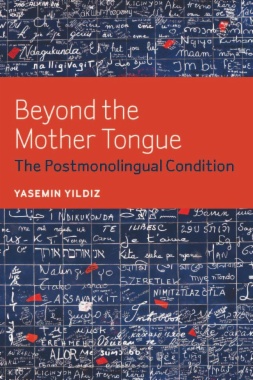Beyond the Mother Tongue examines distinct forms of multilingualism, such as writing in one socially unsanctioned “mother tongue” about another language (Franz Kafka); mobilizing words of foreign derivation as part of a multilingual constellation within one language (Theodor W. Adorno); producing an oeuvre in two separate languages simultaneously (Yoko Tawada); and mixing different languages, codes, and registers within one text (Feridun Zaimoglu).
- Cover�������������������������������
- BEYOND THE MOTHER TONGUE
- Title�������������������������������
- Copyright�������������������������������������������
- Dedication����������������������������������������������
- CONTENTS����������������������������������������
- Acknowledgments�������������������������������������������������������������
- Introduction: Beyond the Mother Tongue? Multilingual Practices and the Monolingual Paradigm�������������������������������������������������������������������������������������������������������������������������������������������������������������������������������������������������������������������������������������������������������������������������������������������������
- 1. The Uncanny Mother Tongue: Monolingualism and Jewishness in Franz Kafka����������������������������������������������������������������������������������������������������������������������������������������������������������������������������������������������������������������������������������������������
- 2. The Foreign in the Mother Tongue: Words of Foreign Derivation and Utopia in Theodor W. Adorno����������������������������������������������������������������������������������������������������������������������������������������������������������������������������������������������������������������������������������������������������������������������������������������������������������������
- 3. Detaching from the Mother Tongue: Bilingualism and Liberation in Yoko Tawada�������������������������������������������������������������������������������������������������������������������������������������������������������������������������������������������������������������������������������������������������������������
- 4. Surviving the Mother Tongue: Literal Translation and Trauma in Emine Sevgi Özdamar�������������������������������������������������������������������������������������������������������������������������������������������������������������������������������������������������������������������������������������������������������������������������������
- 5. Inventing a Motherless Tongue: Mixed Language and Masculinity in Feridun Zaimoğlu
- Conclusion: Toward a Multilingual Paradigm? The Disaggregated Mother Tongue�������������������������������������������������������������������������������������������������������������������������������������������������������������������������������������������������������������������������������������������������
- Notes�������������������������������
- Works Cited�������������������������������������������������
- Index�������������������������������

